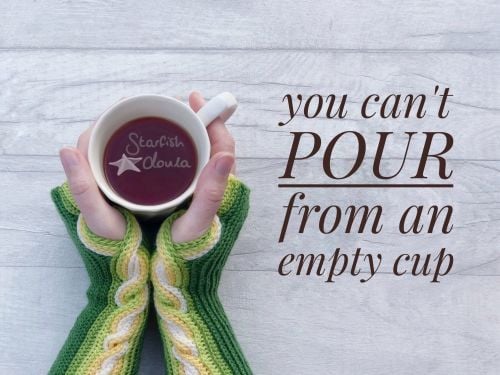Long Pregnancy Series: Doulaing Beyond 42 Weeks
Posted on
When you are a new doula, you know it is only a matter of time before you come across your first long pregnancy. As a business we have to operate in the way that is most efficient, and for most of us that means blocking out a 4 week block [38-42 weeks] per client and only being on-call for one client at once. We all know that clients can go into labour outside of that time, but that is when they are most likely to labour. Of all the births I’ve supported, only a handful have been before 38 weeks, and almost all of those births have been planned early inductions.
Staying on-call for longer than you had planned is rather different from being called out early. You can prepare for it, which is almost impossible for an early birth out of the blue. It’s also rather more tiring, because being on-call is a big commitment.
Practically, not a great deal changes about my life when I’m on-call. I don’t drink alcohol, so I don’t need to avoid it. I always have childcare available, and two out of three children are old enough to look after themselves anyway. I do avoid travelling significant distances for home ed trips or training, so going past 42 weeks may mean I have something like that booked in. Cancelling commitments like that is one of the occupational hazards of doulaing; my family and friends are very familiar with the phrase “I am on-call though...” and what that may mean for our plans. If I continue with a commitment, I often don’t enjoy it quite so much because I am constantly listening out for my phone ringing.
Emotionally, being on-call after 42 weeks is more intense than being on-call before 42 weeks. We work hard to create a space in which our clients can feel safe and comfortable in the decisions they are making, and that work can be much harder once 42 weeks has passed. This is especially true if there is a lot of pressure and expectation being placed upon the parents from well-meaning friends and family, and also from health care professionals, some of whom seem determined to do away with the “professional” part of their title. Sometimes the doula may be the only person who is entirely supportive of the parents and their wishes, and that is a lot to shoulder.
Supporting post 42 weeks usually means there is very intensive support going on; lots of messaging, an extra antenatal or two exploring possibilities and how they make your clients feel, lots of reassurance, probably attending hospital appointments.
When I am on-call, particularly past 42 weeks, you can be sure that I am leaning heavily on my doula-sisters and doula-wives. I am making sure I am looking after myself so that I can be the best possible support for my clients. I am filling my soul cup at every opportunity so that I can give everything necessary to the family I am caring for. There is a saying – you can’t pour from an empty cup – and it is true. It is very easy for those in caring professions to give so much of themselves that they burn out. Taking care of myself means I don’t.

Super doula
Because of how often women with long pregnancies are faced with pressure, disrespect, even downright aggression and threats when they decline induction, whenever a doula comes across a particularly supportive and respectful maternity health care professional, we take close notes. Like, actual notes. The swirly notepad comes out; names and job roles are jotted down.
The information is shared with other local doulas that “this one listens to what they want” and “that one works to support their choices” and “this one gets proper consent before carrying out procedures, AND they check that they still have consent part way through”. If another client is booked under that hospital, we mention the names of people who we know are supportive of women’s rights, who we know listen to their patients, so that our clients can seek them out.
This forms part of our signposting skills. Signposting (knowing where to find the answers to a question and pointing in that direction) is sometimes called a doula superpower, because it is such an important part of our job. We cannot possibly hold all the answers to all the possible questions our clients may have in our heads. But we don’t have to. We just have to know where they might be able to find those answers, and point them in that direction. To quote a previous client:
"We felt we could ask her anything - and if she didn’t know, she’d help us find out."
When supporting a long pregnancy I signpost a lot, to the information in the previous posts in this series, to the AIMS books, to research, to birth stories post 42 weeks. I’m always on the lookout for useful blog posts, research and books that parents can use to make decisions about their pregnancies and their care. Eventually, I will develop a resource section on my website where I can put everything so that anybody can access it.
There is no right or wrong. There is only what is best for you right now.
What is right for one set of expectant parents is not the same as what is right for another. The only way you can find out what is right for one person is to sit with them, hear their story, and really listen. Sometimes the right thing for them is to have an induction. Sometimes it is to wait. Sometimes it is to wait for a few days and then choose an induction.

I am not for or against induction. Inductions are a vital tool in the obstetric toolbox, and we’re lucky to live in a country where they are a viable and (largely) safe option. I have supported multiple inductions, some planned, some not, and have seen some fantastically positive births after induction. I have celebrated with parents, taken pictures of their first moments... the only time I have ever shed happy tears at a birth was after an induction.
But, like with all tools, induction has to be used appropriately. Use the wrong tool for the job and you will cause damage. I have seen the after effects of those births too. I have been the one walking with traumatised and broken parents after inductions which have gone horribly, which could have been avoided had the options been presented in an unbiased way and then the parents properly supported in the decisions they made. I have held people while they cried, kept their testimonies safe in my heart, protected their birth spaces as they take steps to face their fears, take control and heal themselves.
I am not for inductions, but I am for listening to people and really hearing what they are saying. I am for treating people with empathy, compassion and respect. I am for individuals being involved in their own healthcare decisions. I am for true consent. I am for parents having the best possible start to their parenting journey and that cannot happen if they are traumatised.
I am not against inductions, but I am against coercion, bullying and obfuscation of the truth. I am against doing everything in one’s means to ensure 100% compliance, including threatening (and following through with) referring to Social Services. I am against doing harm to someone because “that’s our policy” with no consideration of whether that policy is appropriate for them, or even appropriate at all. I am against ignoring someone’s mental health for a potential (and it is only potential, not guaranteed) gain in physical health.
That last one works both ways, actually. Induction may carry physical risks, but if your mental health means you can’t wait for labour to start naturally, I will drive you to the hospital myself and cheerfully hang fairy lights on the drip stand, because that is what's right for you.
My only focus is on what is right for my clients. I listen. I find out where they are. I help them figure out where they want to go, and then I accompany them while they get themselves there. They are at the centre of everything I do.
That is the doula way.

Add a comment: